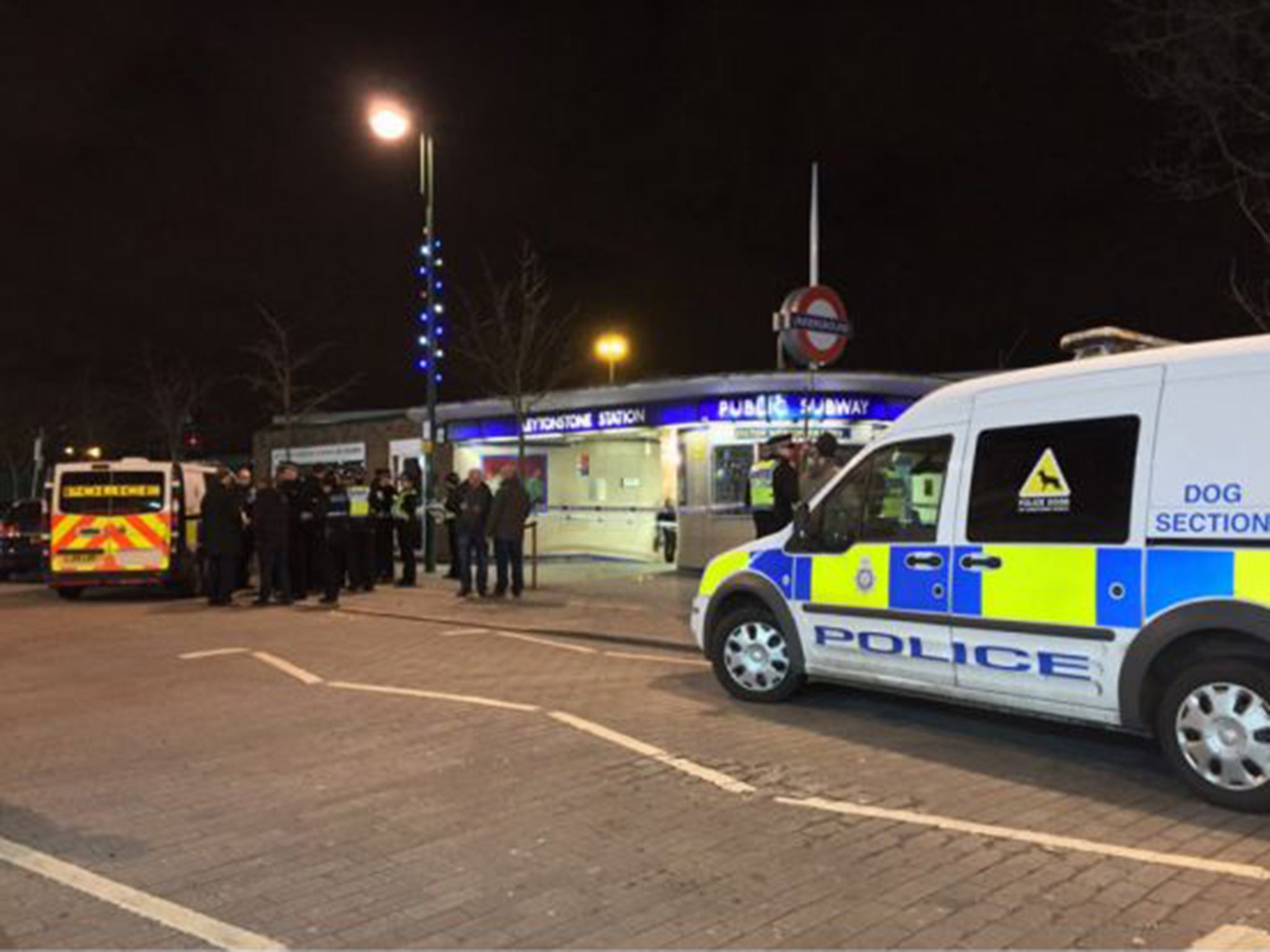The Leytonstone stabbing wasn't about terrorism - it was about mental health
As much as we might loathe the actions of Saturday’s attacker, he’s also been let down spectacularly by the system and then branded a “terrorist” because of a single sentence that came out of his mouth

Your support helps us to tell the story
From reproductive rights to climate change to Big Tech, The Independent is on the ground when the story is developing. Whether it's investigating the financials of Elon Musk's pro-Trump PAC or producing our latest documentary, 'The A Word', which shines a light on the American women fighting for reproductive rights, we know how important it is to parse out the facts from the messaging.
At such a critical moment in US history, we need reporters on the ground. Your donation allows us to keep sending journalists to speak to both sides of the story.
The Independent is trusted by Americans across the entire political spectrum. And unlike many other quality news outlets, we choose not to lock Americans out of our reporting and analysis with paywalls. We believe quality journalism should be available to everyone, paid for by those who can afford it.
Your support makes all the difference.On Saturday evening, a stabbing took place in Leytonstone. On Monday morning, a stabbing took place in Oxford.
One left us all feeling less safe on the streets of Britain, while the other was simply added to a long list of unfortunate events.
All that set these two incidents apart was one uttered phrase.
There was immediate speculation as to whether the Leytonstone attack was a ‘terrorist incident’. But there was no manifesto, no Adebelajo-style piece to camera, no further explanation of its meaning. There were, reportedly, just four words: “This is for Syria”.
Come Sunday, all any of us could do was reel back and shudder, shocked that ‘terror’ could have returned to the streets of the UK. The counter-terror squads were assembled, Leytonstone tube station was put on 24-hour police watch, and everyone began to agree that the attack was motive-driven. All the British Trump wannabes spouted their predictable anti-Muslim rhetoric, blamed the many for the actions of the few and, once again, the reality was overlooked.
Saturday’s assailant was already known to police. But that wasn’t because he was on any terrorist watch-list. Instead, three weeks ago, police were called to assess the mental state of this man, who had been “seeing demons”. In the midst of rising Islamophobia and an increasing mental health need that isn’t being met, this is important.
Jahan Mahmood is a former Home Office adviser and now works on anti-radicalisation projects across the UK. He told me recently how serious mental health problems have become more and more common among young Muslims. He explained how youngsters are becoming Westernised and alienated from their traditional families, while also feeling alienated from wider society as the anti-Muslim backlash continues. “They’re disillusioned and isolated, and that’s a breeding ground for depression and mental problems,” he said.
Sadly, there’s still a huge mental health taboo among men. Couple that with the well-documented stigma surrounding the issue within Muslim communities and you have young men, unable to talk about their problems, completely disengaged from the world and desperately seeking answers. Sometimes these men end up aligning themselves with radical groups, or being taken advantage of by their radicalisation techniques.
When something awful happens, we always hear how the perpetrator was a ‘normal lad’, a ‘good student’ or ‘likeable’. We lose them somewhere, and to someone. And, while it’s vitally important we understand who that shady someone is, we can shut off their supply by getting the right support to the right people. Leytonstone wasn’t really about terrorism, or about Syria. It was about mental health, and a family struggling to get support for a vulnerable young man.
As much as we might loathe the actions of Saturday’s attacker, he’s also been let down spectacularly by the system and then branded a “terrorist” because of a single sentence that came out of his mouth.
What do we do with people who probably never would have joined Isis but have been swept away on a tide of radicalisation? After the fact, we must find a way back in to society for people who have been radicalised. In doing so, we greatly reduce the risk of more harm – and we prove that, for many, extremism is a negative ideology foisted upon the vulnerable and the disaffected rather than a powerful force for world change.
Be it a single knife-wielder in London, or a would-be jihadist en route to Syria, we have no power to stop terrorism until we understand the way in which it brings people to its fold. This isn’t about forgiving people for horrifying actions – but it is, quite simply, about prevention rather than revenge.
Join our commenting forum
Join thought-provoking conversations, follow other Independent readers and see their replies
Comments